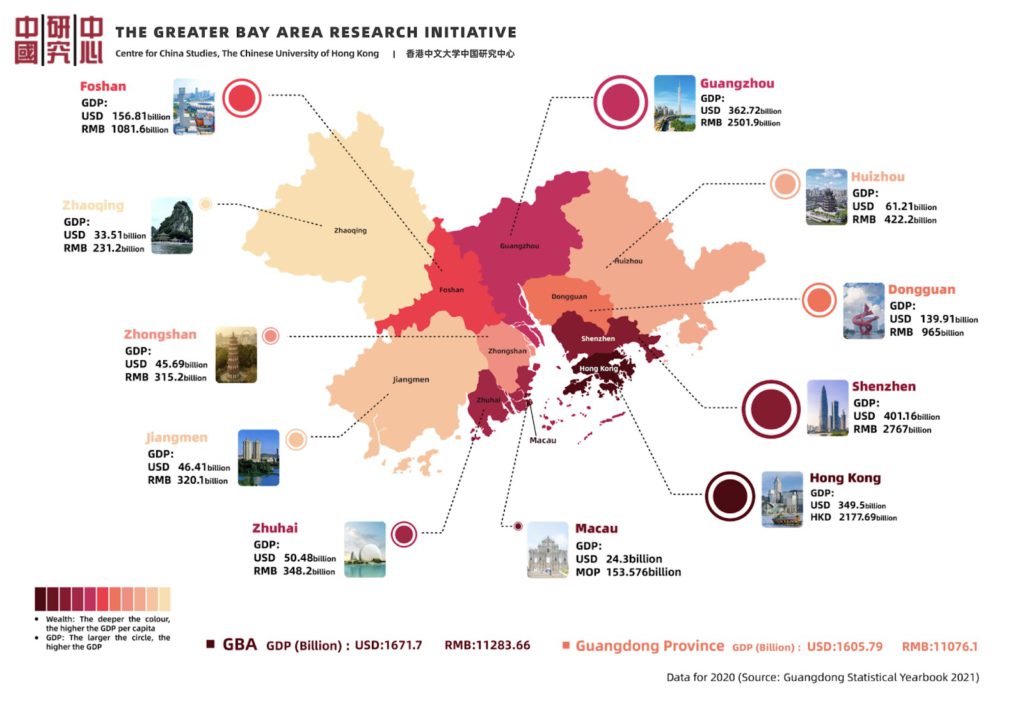
The Guangdong-Hong Kong-Macao Greater Bay Area (GBA) refers to the area covered by nine cities in Guangdong province and the two special administrative regions (SARs) of Hong Kong and Macao. This region of China has become more connected and integrated for some decades, through Hong Kong investment in its hinterland from the 1980s to the rapid development of infrastructure connectivity over recent years, including the connection of Hong Kong to the national high-speed rail network and the construction of the Hong Kong-Zhuhai-Macao bridge. At the same time, Guangdong has seen rapid economic and social development, in particular in the provincial capital, Guangzhou, and in Shenzhen, home to some of China’s most innovative enterprises and a magnet for entrepreneurial start-ups. When taken together with the global financial centre of Hong Kong, and the gaming and leisure industries of Macao, this makes the GBA one of the most vibrant and international parts of contemporary China.
In February 2019, China’s central government issued the outline development plan (Eng/中文) for the GBA. The plan envisaged an important role for the GBA in the next stage of China’s development, as a region which could help enhance China’s global competitiveness and innovation strengths. The existing strengths of this region, combined with this policy vision, point to many opportunities to build a modern, innovative and developed region.
The context is, however, a challenging one. Covid-19 came in the midst of an intensifying strategic rivalry between the US and China and challenges to globalisation as a major trend in international political economy. The central government has responded to these challenges with an economic strategy of “dual circulation” which emphasises the importance of domestic demand alongside a resilient approach to engaging with the global economy. Within the GBA, integration and connectivity remain constrained by a variety of institutional gaps and policy barriers. Hence the need for “smart” integration in the GBA. This will require policy innovation which responds to the global, national and local context. Delivering research and engaging with the policy and public debates across the range of issues facing the GBA is at the heart of the CCS GBA Research Initiative.